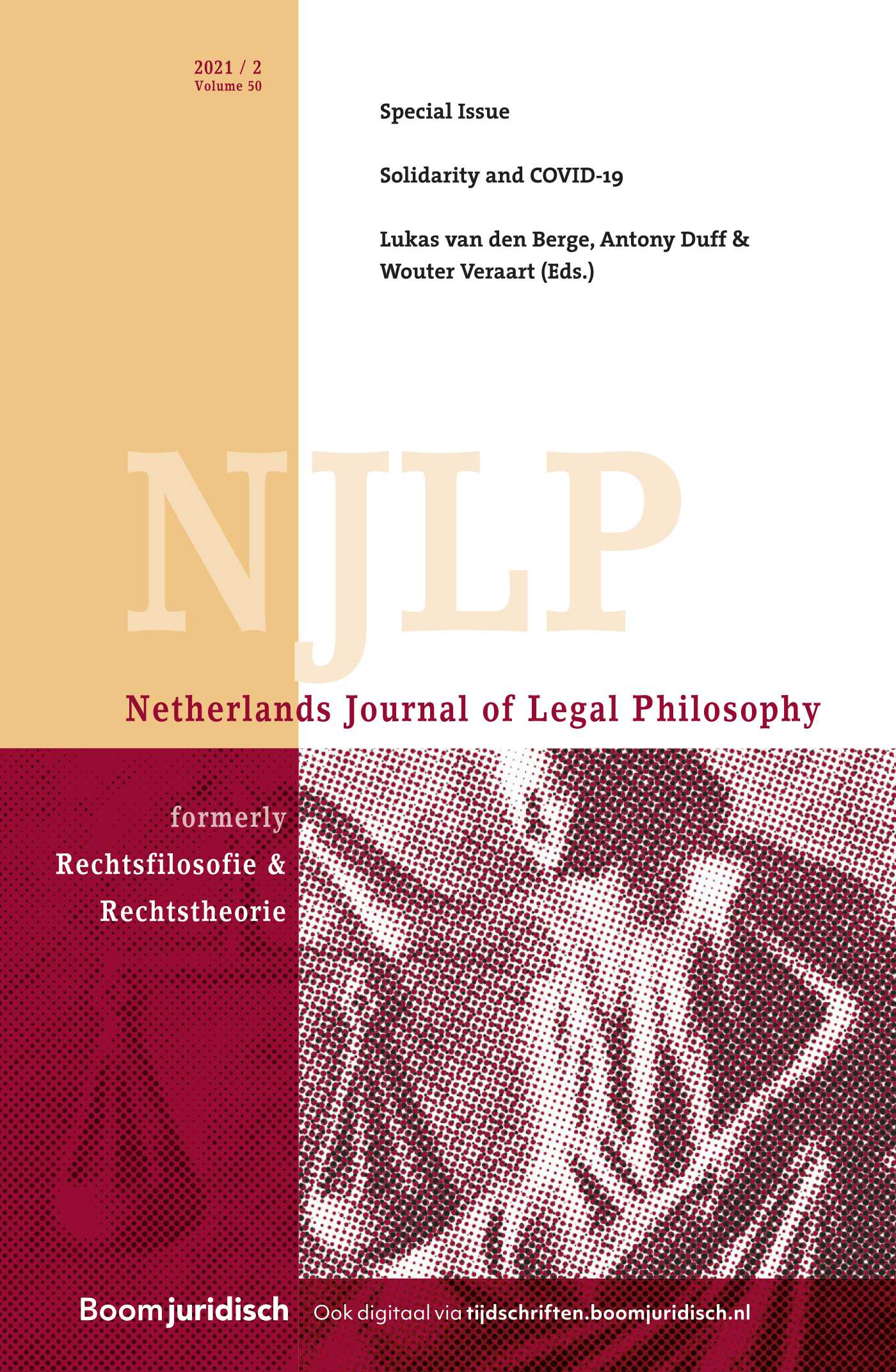|
Corporations can have rights but whether they should also have democratic rights depends among other things on whether they are the kind of entities to which the democratic ideal applies. This paper distinguishes four different conceptions of “the person” that can have democratic rights. According to one view, the only necessary condition is legal personality, whereas according to the other three views, democratic inclusion is conditioned also by personhood in the natural sense of the term. Though it is uncontroversial that corporations can be legal persons, it is plausible to ascribe personhood in the natural sense to corporations only if personhood is conceptualized exclusively in terms of moral agency. The conclusion of the paper is that corporations can meet the necessary conditions for democratic inclusion but that it is not yet clear in democratic theory exactly what these conditions are. |


Netherlands Journal of Legal Philosophy
About this journalSubscribe to the email alerts for this journal here to receive notifications when a new issue is at your disposal.
| Opinion |
|
| Authors | Lukas van den Berge |
| Author's information |
| Article |
|
| Keywords | Corporations, democracy, legal personality, personhood, inclusion |
| Authors | Ludvig Beckman |
| AbstractAuthor's information |
| Article |
|
| Keywords | substantive criminal law, excuses, insanity defense, status defense |
| Authors | Johannes Bijlsma |
| AbstractAuthor's information |
|
Michael Moore has argued that modern two-pronged tests for legal insanity are wrongheaded and that the insanity defense instead should be a ‘status defense’. If Moore is right, than the laws on insanity in most legal systems are wrong. This merits a critical examination of Moore’s critique and his alternative approach. In this paper I argue that Moore’s status approach to insanity is either under- or overinclusive. A new interpretation of the modern tests for insanity is elaborated that hinges on the existence of a legally relevant difference between the mentally disordered defendant and the ‘normal’ defendant. This interpretation avoids Moore’s criticism as well as the pitfalls of the status approach. |
| Article |
|
| Keywords | crisis discourse, rupture, counterterrorism, precautionary logic, risk |
| Authors | Laura M. Henderson |
| AbstractAuthor's information |
|
This article addresses the conditions of possibility for the precautionary turn in legal discourse. Although the precautionary turn itself has been well-detailed in both legal and political discourse, insufficient attention has been paid to what made this shift possible. This article remedies this, starting by showing how the events of 9/11 were unable to be incorporated within current discursive structures. As a result, these discursive structures were dislocated and a new ‘crisis discourse’ emerged that succeeded in attributing meaning to the events of 9/11. By focusing on three important cases from three different jurisdictions evidencing the precautionary turn in legal discourse, this article shows that crisis discourse is indeed employed by the judiciary and that its logic made this precautionary approach to counterterrorism in the law possible. These events, now some 16 years ago, hold relevance for today’s continuing presence of crisis and crisis discourse. |
| Article |
|
| Keywords | Citizenship, Political Membership, Citizenship Rights |
| Authors | Chiara Raucea |
| AbstractAuthor's information |
|
This paper examines how the distribution of social goods within a political community relates to decisions on membership boundaries. The author challenges two renowned accounts of such a relation: firstly, Walzer’s account according to which decisions on membership boundaries necessarily precede decisions on distribution; secondly, Benhabib’s account, according to which membership boundaries can be called into question on the basis of universalist claims. Departing from both accounts, the author concludes that actual changes in the pool of participants in practices of creation and exchange of social goods pressure a political community to redefine its distributive patterns and, accordingly, the boundaries of its formal political membership. This claim will be supported by the analysis of threshold cases decided by the EU Court of Justice, in which EU citizenship is invoked with the atypical purpose of granting rights to a specific group of non-formal members. |
| Book Review |
|
| Authors | Gustavo Arosemena |
| Author's information |
| Book Review |
|
| Authors | Carel Smith |
| Author's information |
| Book Review |
|
| Keywords | Sovereignty, people, rule of recognition, H.L.A. Hart |
| Authors | Bertjan Wolthuis |
| AbstractAuthor's information |
|
‘Sovereignties’ provides clear insights in various aspects of sovereignty, but Waltermann’s approach hides certain issues from view. |

 Issue 2
Issue 2